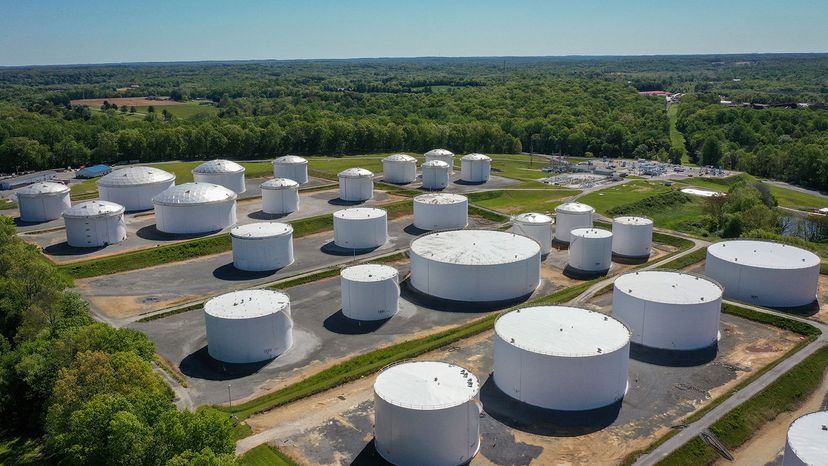
During the summer, pollution is a frequent concern due to increased levels of smog and ozone, which can harm the lungs. Summer heat boosts the formation of ozone, while the appearance of an inversion layer — an immobile layer of air — can trap pollutants in the lower atmosphere [source: EPA].
Summer-grade fuel has a different Reid vapor pressure (RVP) than winter-grade fuel, which contributes to its being (marginally) more eco-friendly. RVP is the vapor pressure of gasoline measured at 100 degrees Fahrenheit (38 Celsius). Fuels with higher RVP evaporate more easily than those with lower RVP. A particular fuel blend's RVP is based on the combined RVP of the ingredients that make up the blend. Regulators worry about this evaporation because it contributes to ozone formation.
Advertisement
Gasoline must have an RVP below 14.7 psi (pounds per square inch), which is normal atmospheric pressure; if a fuel's RVP were greater than 14.7 psi, excess pressure would build up in the gas tank, and the fuel could boil and evaporate. Depending on the state and month, gasoline RVP may not exceed 9.0 psi or 7.8 psi for summer-grade fuel. Some local regulations call for stricter standards [source: EPA]. Because of these varying RVP standards, more than 14 different types of boutique fuel blends are sold throughout the U.S. during the summer [source: Gas Buddy].
Because RVP standards are higher during the winter, winter-grade fuel uses more butane, with its high RVP of 52 psi, as an additive. (Winter-grade gas has about 10 percent butane in its blend). Butane is inexpensive and plentiful, contributing to lower prices. Summer-grade fuel might still use butane, but in lower quantities — around 2 percent of a blend [source: The Oil Drum].
We know that gas prices go up during the summer, generally around Memorial Day, but when do companies start producing these different summer fuels? The EPA defines April to June as the "transition season" for fuel production. Refineries switch over to summer-blend production in March and April. Gas stations have by June 1 to switch to selling summer-grade gas, while terminals and other facilities "upstream" from pumping stations have to switch by May 1 [source: EPA]. Following the summer driving season, companies switch back to winter blends beginning in September, with the first winter increase in RVP allowance occurring on Sep. 15.
In a 2021 report, the EPA said that "roughly 75 million Americans breathe cleaner air today due to [the seasonal fuel] program." Still, the increased price, combined with the use of controversial additives like ethanol (which is less energy efficient than gasoline and produces more smog) and methyl tertiary butyl ether (MTBE), means that the program may still have its detractors.
In times of crisis or natural disasters, the EPA may waive the summer fuel mandates. On April 29, 2022, the EPA issued an emergency waiver for a higher-ethanol gasoline blend, allowing summertime sales of the fuel in an attempt to help lower gasoline prices at the pump, which have risen sharply largely due to inflation in the U.S. as well as the market shock caused by the Russian invasion of Ukraine, among other factors.
Two other situations that prompted the EPA to waive summer fuel mandates were the 2021 ransomware attack that caused the Colonial Pipeline (which supplies gas to states all along the East coast) to shut down and the COVID-19 pandemic in 2020. In the former case, the waiver was to keep fuel prices from getting too high and in the latter, the dropoff in gasoline demand meant that more time was needed to transition from winter to summer fuel, as gas storage is limited.
Advertisement